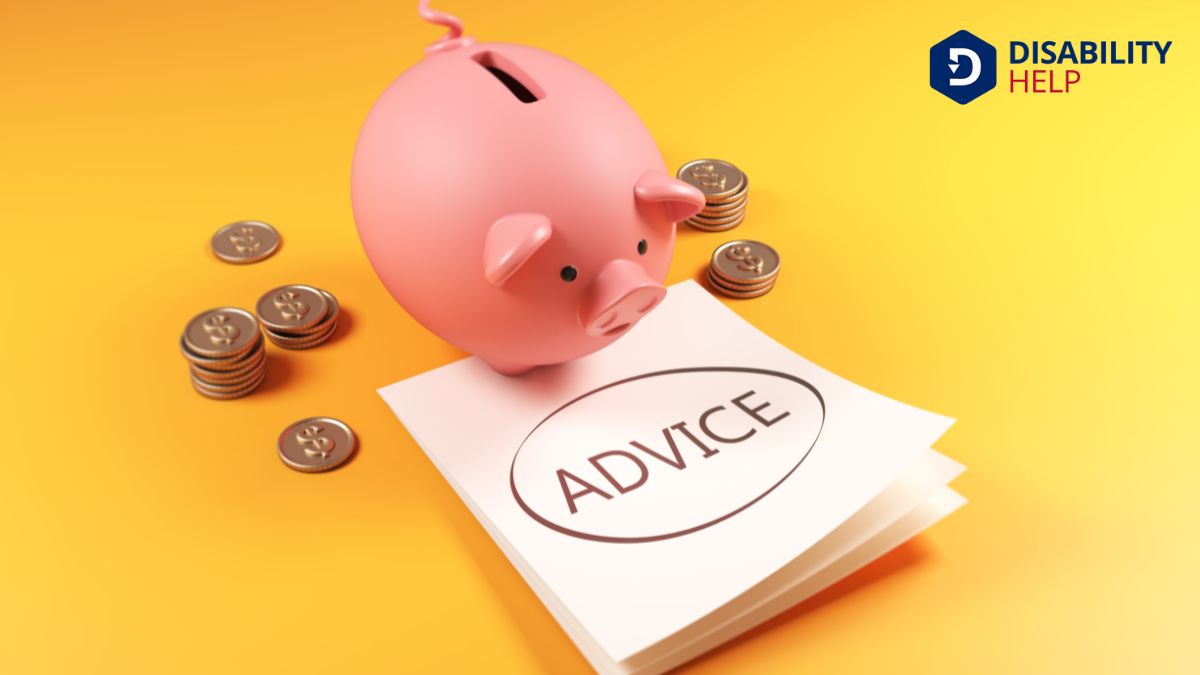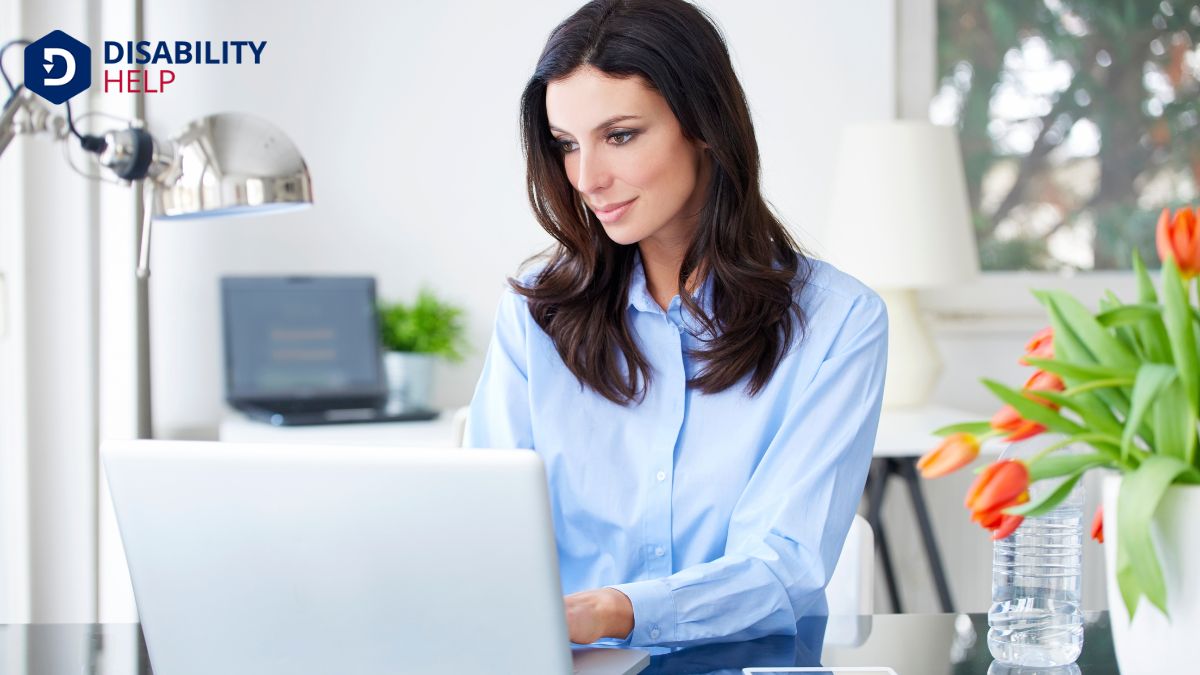We can explore a variety of resources available to support entrepreneurshipThe act of starting and running one’s own business, often a viable option for individuals with dis... for people with disabilities, including financial assistance programs like grants and loans, mentorship, and coaching opportunities. Access to adaptive technologies, accessible business education, and inclusive marketing strategies can enhance the entrepreneurial journey. Networking and a supportive community foster collaboration and growth, while success stories and role models inspire resilienceThe ability of individuals with disabilities to cope with and adapt to challenges and adversity. and innovation. Identify more resources that can empower your entrepreneurial aspirations.
Key Takeaways
- Financial assistance programs offer grants, loans, and subsidies for entrepreneurs with disabilities to support business development.
- Mentorship and coaching provide guidance and skill-building tailored to the unique challenges faced by entrepreneurs with disabilities.
- Adaptive technologies like screen readers and ergonomic equipment enhance productivity and comfort for entrepreneurs with disabilities.
- Inclusive marketing strategies ensure accessibilityThe design of products, devices, services, or environments to be usable by people with disabilities.... and broaden audience reach for businesses led by individuals with disabilities.
- Success stories of entrepreneurs with disabilities inspire resilience and foster collaborative growth within the community.
Financial Assistance Programs

When starting a business, financial assistance can be vital, especially for entrepreneurs with disabilities who may face unique challenges.
It's understood that securing funding is often the first hurdle, and having the right resources can make all the difference. Programs specifically designed for entrepreneurs with disabilities can help us bridge financial gaps. Grants, loans, and subsidies are available to support our business ideas and growth.
Government agencies, nonprofit organizations, and private entities offer various financial assistance options.
It's important to research and identify programs that align with our specific needs. Applying for these programs requires understanding eligibility criteria and preparing strong applications.
Mentorship and Coaching Opportunities
Although financial support is essential, mentorship and coaching can be the backbone of entrepreneurial success for people with disabilities.
We understand that maneuvering business challenges can feel overwhelming, but experienced mentors provide valuable insights and guidance. They’ve been through similar journeys and can share practical advice tailored to our unique needs.
Let’s not underestimate the power of a supportive coach who believes in our potential and helps us develop vital skills. Together, we can build confidence, refine strategies, and overcome obstacles.
By connecting with mentorship programsPrograms that pair individuals with disabilities with experienced professionals to provide guidance ... specifically designed for entrepreneurs with disabilities, we gain access to networks that open doors to opportunities.
Adaptive Technologies and Tools
Access to adaptive technologies and tools can revolutionize the entrepreneurial journey for people with disabilities. These innovations empower us to overcome barriers that might otherwise hinder our business ventures.
By leveraging tools like screen readers, speech-to-text software, and accessible communication platforms, we can enhance productivity and engage more effectively with clients and colleagues.
Let’s explore how these resources help us. For instance, screen magnifiers can make it easier to navigate complex spreadsheets, while voice recognition software can streamline tasks like sending emails or creating documents.
Additionally, having access to ergonomic equipment and specialized input devices guarantees comfort and efficiency.
Networking and Community Support
Building a strong network and finding community support can be game-changers for entrepreneurs with disabilities. By connecting with others who share similar experiences, we open doors to opportunities and resources that might otherwise remain hidden.
Networking helps us find mentors, partners, and collaborators who understand our unique challenges and strengths.
Community support, whether through local groups or online platforms, provides encouragement and shared knowledge. We can learn from others' experiences and gain insights into overcoming obstacles.
It's important to engage with disability-focused business organizations and attend events where we can connect with like-minded individuals.
Let’s seek out these connections, participate in discussions, and share our journeys. Together, we can build a supportive network that fosters growth and success in our entrepreneurial endeavors.
Accessible Business Education and Training
How can we guarantee that business education and training are truly accessible for entrepreneurs with disabilities?
First, we should advocate for inclusive curricula that address diverse learning needs. This means providing materials in multiple formats, such as audio, braille, and text-to-speech.
Furthermore, we must guarantee physical spaces and online platforms are equipped with necessary accommodationsModifications or adjustments in healthcare settings to support patients with disabilities., like ramps, elevators, and screen readers.
Partnering with organizations focused on disability rightsThe legal and human rights afforded to individuals with disabilities, often the focus of advocacy an... can help us identify and implement best practices.
We should also encourage educators to undergo disability awareness training, fostering an environment of understanding and support.
Finally, let’s promote mentorship programs connecting aspiring entrepreneurs with disabilities to experienced business leaders, helping them gain insights and confidence to succeed in their ventures.
Legal and Regulatory Guidance
While guaranteeing accessible business education is essential, understanding the legal and regulatory landscape is equally important for entrepreneurs with disabilities. Maneuvering this landscape can be challenging, but we've resources to help us understand our rights and obligations.
Organizations like the Small Business Administration (SBA) and the Job Accommodation Network (JAN)A U.S. service that provides free, expert, and confidential guidance on workplace accommodations and... offer guidance on relevant laws, such as the Americans with Disabilities Act (ADA)A U.S. law that prohibits discrimination against individuals with disabilities in all areas of publi..., which protects us from discrimination and guarantees access to necessary accommodations.
We can also seek legal counsel specializing in disability rights to interpret complex regulations and assist in compliance. These professionals can help us avoid potential legal pitfalls, guaranteeing our businesses operate smoothly.
Let’s leverage these resources to empower our entrepreneurial journey and foster an inclusive business environment.
Inclusive Incubators and Accelerators
As we explore inclusive incubators and accelerators, let's consider how accessible program designs can empower entrepreneurs with disabilities.
We can benefit from mentorship opportunities that provide guidance and support tailored to our unique challenges and strengths.
Additionally, networking and collaboration spaces foster connections and innovation, which are essential for our entrepreneurial success.
Accessible Program Design
Creating accessible program designs in incubators and accelerators is essential for fostering entrepreneurship among people with disabilities.
When we prioritize accessibility, we open doors for innovation and inclusivity. By ensuring that all program materials and facilities are accessible, we enable entrepreneurs with disabilities to fully participate and contribute. This includes providing materials in various formats, such as braille or audio, and ensuring physical spaces are navigable for those with mobility challenges.
We also need to take into account digital accessibility, making sure online resources and platforms are usable by everyone, including those who rely on assistive technologies.
Mentorship Opportunities Offered
Mentorship opportunities within inclusive incubators and accelerators play a crucial role in empowering entrepreneurs with disabilities. These programs provide essential guidance and support, helping us navigate the unique challenges we face.
Let’s explore how they contribute to our success:
- Tailored Guidance: Mentors offer personalized advice, adapting strategies to fit our specific needs and capabilities, ensuring our business ideas are viable and sustainable.
- Skill Development: We gain access to workshops and training sessions that enhance our entrepreneurial skills, equipping us with the tools needed for success.
- Confidence Building: Through consistent support and encouragement, mentors help boost our confidence, empowering us to pursue our entrepreneurial dreams.
Networking and Collaboration Spaces
While starting our entrepreneurial journey, finding supportive networking and collaboration spaces is essential. Inclusive incubators and accelerators provide us with the opportunity to connect with like-minded individuals who understand the unique challenges we face.
These spaces foster an environment where we can share ideas, access resources, and build valuable relationships. By participating, we gain insights from diverse perspectives, which can lead to innovative solutions tailored to our specific needs.
Inclusive incubators often offer tailored programs that focus on accessibility and adaptability, ensuring we've the tools and knowledge necessary for success. They encourage collaboration, allowing us to learn from each other and grow together.
Marketing and Branding Resources
Let's explore how accessible marketing strategies and inclusive branding techniques can empower entrepreneurs with disabilities.
We'll focus on creating campaigns that resonate with diverse audiences and guarantee our brand messages are universally understood.
Accessible Marketing Strategies
Embracing inclusive marketing strategies isn't just ethical, it's also beneficial for business growth.
We can reach a broader audience by ensuring our marketing is accessible to everyone, including people with disabilities.
Here are some practical steps we can take:
- Alternative Text for Images: Providing descriptive alt text for images helps those using screen readers understand visual content, ensuring everyone gets the full message.
- Captioned Videos: Including captions in our videos supports those who are deaf or hard of hearing, enabling them to engage fully with our content.
- Accessible Websites: Designing our websites to be navigable with keyboard commands and screen readers makes them user-friendly for all.
Inclusive Branding Techniques
To truly connect with diverse audiences, we must incorporate inclusive branding techniques that resonate with people of all abilities. This means creating campaigns that reflect and value the diversityThe inclusion of individuals from a wide range of backgrounds, including people with disabilities. of the disability community.
We can guarantee our messages are accessible by using clear language and providing alternative text for images. Video content should include captions and audio descriptions.
RepresentationThe way people with disabilities are depicted in media, culture, and politics, often influencing pub... matters, so let’s feature individuals with disabilities in our marketing materials, making sure they’re portrayed authentically and positively.
Collaborating with disability advocates and influencers can also enhance our understanding and reach. By doing so, we’re not only promoting our brand but fostering an inclusive environment that celebrates everyone’s potential.
Let’s commit to branding that doesn’t just speak, but truly listens and connects.
Success Stories and Role Models

While many may face obstacles on their entrepreneurial journeys, people with disabilities have shown remarkable resilience and innovation, proving that success knows no bounds.
By sharing their stories, these trailblazers inspire and motivate us all. Let’s explore some of their achievements:
- Jason DaSilva: A filmmaker with multiple sclerosis, he founded AXS Map, a platform helping users find accessible locations.
- Haben Girma: As the first deafblind graduate of Harvard Law, she advocates for disability rights and inclusive technology.
- Aaron Fotheringham: Known as "Wheelz," he’s a wheelchair motocross athlete who’s redefined what’s possible in extreme sports.
These role models remind us that determination and creativity can overcome barriers.
Their stories encourage us to pursue our dreams, no matter the challenges we face.
Conclusion
In our journey to support entrepreneurs with disabilities, we've explored a wealth of resources that can make a real difference. From financial assistance and mentorship to adaptive technologies and inclusive training programs, there’s a robust network ready to help. Let’s embrace these opportunities and learn from inspiring role models who’ve paved the way. Together, we can break barriers and build a more inclusive entrepreneurial landscape. We're excited to see what you'll achieve!






